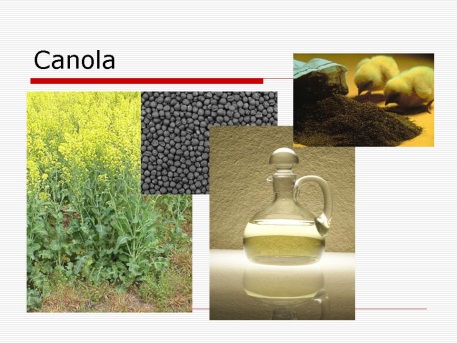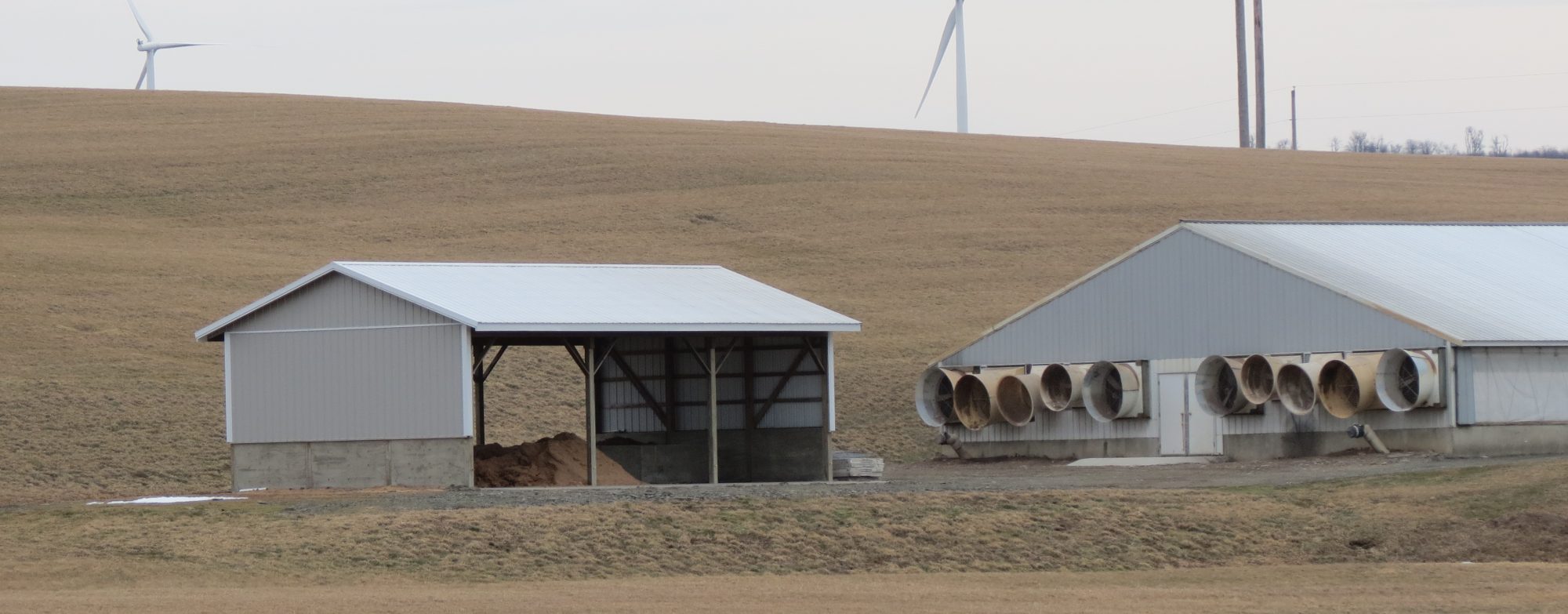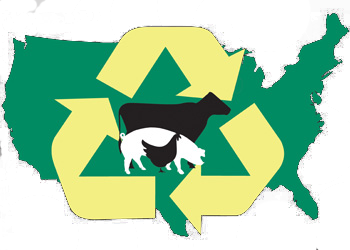![]() Waste to Worth home | More proceedings….
Waste to Worth home | More proceedings….
Purpose
A review of the literature indicated that good quality biodiesel can be used in farm equipment at concentrations from 20% (B20) to 100% (B100) depending on air temperature and the design of the engine. Using biodiesel reduces emissions of carbon monoxide, sulfur containing pollutants that contribute to acid rain, unburned hydrocarbons, and particulates. Using B100 in a diesel engine can reduce fuel efficiency by about 8%, but had no other negative impacts when operated during warm weather. Using B20 to B50 has been shown to be sufficient to make loss of fuel efficiency inconsequential and allows operation of tractors in cold weather. The objectives of this study were to compare the use of soybeans and canola as a fuel crop for on-farm biodiesel production, and to determine the benefits of using animal manure as a source of fertilizer for on-farm fuel crop production. Related: Manure value & economics
What Did We Do?
 |
|
|
Soybeans and canola are both oil seeds that can be used to make high-quality biodiesel. Soybeans are 19% oil and a single bushel will yield about 1.5 gallons of biodiesel. At a market price of $10 to $14 per bushel the soybean cost to produce a gallon of biodiesel can range from $6.67 to $9.33 per gallon. Or to state it another way, if the price of diesel is $4.20/gal making biodiesl on-farm would be like selling soybeans for only $6.30/bu. It was concluded that it would best to sell soybeans rather than use then for on-farm biodiesel production. Canola, or rape seed, contains 40% oil and will yield about 2.8 gal of biodiesel/bu. In the last few years, canola prices have increase from $5/bu to $10/bu. At a diesel price of $4.20/gal the value of the canola would be $11.76/bu which exceeds traditional prices of canola and is slightly higher than recent US prices. Therefore, canola was selected as the preferred crop for on-farm production of biodiesel in this study.
Few canaola buying stations are located in the Southeastern US and as a result canola is typically not grown in swine and poultry producing states such as South Carolina, North Carolina, and Georgia. Canola can be grown in the fall and winter months in a manner similar to wheat which adds to the appeal of using canola for on-farm biodiesel production in southern states.
A crop budget for canola production in the Southeastern US was used with current fertilizer prices to compare the cost to produce canola using purchased fertilizer versus using animal manure to provide all of the N, P2O5, and K2O needs. It was determined that the cost to produce a bushel of canola was about $6.24/bu if commercial fertilizer was used. However, using manure as the sole nutrient source lowered production costs to $3.47/bushel. The input cost to produce biodiesel from canola was determined to be $2.23 per gallon if fertilizer was purchased versus $1.24 per gallon if manure was used to produce canola
Canola meal is a valuable by-product with a protein content of about 33% (extracted by pressing without solvents) and can be used as a protein source in animal feeds. The value of the canola meal was assumed to be $234/ton and the meal production per acre was 0.75 tons. The value of canola meal was determined to be $1.25 per gallon biodiesel. The value of the meal was used as a production credit towards the cost of making biodiesel on-farm. This meal credit can only be realized if the meal is sold at market value or by using canola meal on-farm as a feed ingredient for livestock (e.g. beef or dairy cattle).
Using a moderate biodiesel production cost ($1.50/gal) the cost to make canola biodiesel on farm was $2.36/gal if fertilizer was purchased and $1.49/gal if manure was used as a fertilizer replacement. If the canola meal credit cannot be realized, on-farm biodiesel production cost was $3.61/gal if fertilizer was purchased, and $2.74/gal if manure was used.
What Have We Learned?
The results indicated that:
- soybeans are too valuable to be used as a fuel crop,
- canola can yield more fuel per acre than soybeans,
- fertilizer costs can account for 44% of the cost of producing canola,
- animal producers have a substantial advantage since manure can be used as a source of plant nutrients for canola,
- obtaining fair market value for canola meal is an essential part of lowering the cost to produce biodiesel, and
- making biodiesel for on-farm use or in a cooperative arrangement in a farming community appears to hold an opportunity for animal producers.
Future Plans
This information is being used in extension programs that target animal and row-crop producers.
Authors
Dr. John P. Chastain, Professor and Extension Agricultural Engineer, School of Agricultural, Forestry, and Environmental Sciences, Clemson University, jchstn@clemson.edu
Wilder Ferreira, Extension Economist, School of Agricultural, Forestry, and Environmental Sciences, Clemson University,email: wferrei@clemson.edu
Acknowledgements
Support was provided by the Confined Animal Manure Managers Program, Clemson Extension, Clemson University, Clemson, SC.
The authors are solely responsible for the content of these proceedings. The technical information does not necessarily reflect the official position of the sponsoring agencies or institutions represented by planning committee members, and inclusion and distribution herein does not constitute an endorsement of views expressed by the same. Printed materials included herein are not refereed publications. Citations should appear as follows. EXAMPLE: Authors. 2013. Title of presentation. Waste to Worth: Spreading Science and Solutions. Denver, CO. April 1-5, 2013. URL of this page. Accessed on: today’s date.

